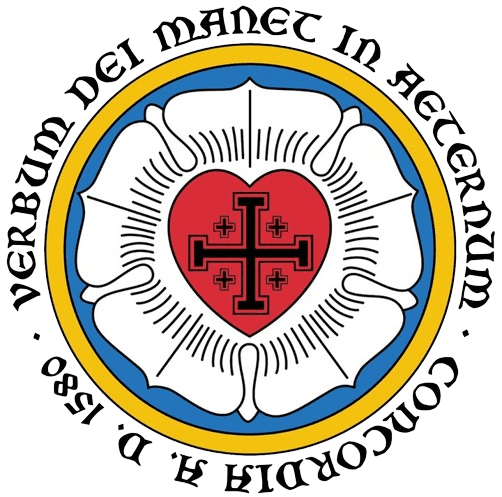1. Is it man’s duty to pray, or is this an arbitrary matter?
Prayer is absolutely necessary, on account of the divine command. For so we hear in the second commandment: “Thou shalt not take the name of the Lord, thy God, in vain.” These words at the same time require us to praise the holy name of God, and prayerfully to call upon him in all trouble. For calling upon God is nothing else than pouring out our prayers to God.
Ps. 50:15. Call upon me in the day of trouble.
Matt. 7:7. Ask, and it shall be given you; seek, and ye shall find; knock, and it shall be opened unto you.
Then, too, our own wants and the necessities of others must urge us to pray unto God.
Matt. 26:41. Watch, and pray that ye enter not into temptation.
1 Tim. 2:1. I exhort, therefore, that, first of all supplications, prayers, intercessions, and giving of thanks be made for all men.
2. What is prayer or the invocation of God?
Prayer is a petition to God, that he, for the sake of Christ, the Mediator, apprehended by true faith, may grant necessary benefits; which petition must be presented not merely with the mouth, but also with the heart. And with it, at the same time, thanksgiving must be rendered for the benefits received.
3. What is the design and effect of prayer?
“This we are to know, that all our safeguard and protection rests in prayer alone. For we are far too weak, of our own strength, equally to contend with Satan, and his auxiliaries, who attack us.” “Wherefore, we are stronger than the devil and his band, solely by the support of prayer.”
Ps. 145:18. The Lord is nigh unto all them that call upon him, to all that call upon him in truth. He will fulfil the desire of them that fear him: he also will hear their cry and will save them.
Prov. 18:10. The name of the Lord is a strong tower, the righteous runneth into it and is safe.
4. What is necessary to true prayer?
These three things in particular:
- That God be called upon.
Matt. 4:10. Thou shalt worship the Lord, thy God, and him only shalt thou serve.
Isa. 42:8. My glory will I not give to another.
- That God be called upon in the name of Jesus Christ, our Saviour.
John 14:14. If ye shall ask anything in my name, I will do it.
John 16:23. Verily, verily, I say unto you, Whatsoever ye shall ask the Father in my name, he shall give it you.
- That our faith repose confidence in the promises, given us in the Word.
5. Is it permitted, then, to ask any gifts whatsoever of God?
This is indeed allowed, but not in one and the same manner. For we are to ask for spiritual gifts, such as the Holy Spirit, the forgiveness of sins, constancy in faith, patience, and the like, which belong to faith and salvation, without any condition, in reliance on the promise of God, and expect them without doubt, as can be seen from the 51st Psalm. But temporal gifts are to be asked for conditionally: namely, provided it be in accordance with the will of God.
Matt. 8:2. Lord, if thou wilt, thou canst make me clean.
Matt. 26:39. O my Father, if it be possible, let this cup pass from me: nevertheless, not as I will, but as thou wilt.
6. What must be connected with true prayer?
Thanksgiving.
Ps. 50:15. Call upon me in the day of trouble, I will deliver thee and thou shalt glorify me.
Col. 3:17. And whatsoever ye do in word or deed, do all in the name of the Lord Jesus, giving thanks to God and the Father by him.
7. Do we not owe this honor of invocation to the saints in heaven?
We may indeed think of the saints, in order to imitate their faith, Heb. 13:7; also to render thanks unto God, that he has given such teachers to the church; and finally, in order that every one may imitate their virtues, according to his calling. James 5:10. But Holy Scripture nowhere teaches that we are to invoke them or ask any aid of them.
8. How so?
Because there is but one Redeemer and Mediator between God and men, Christ Jesus, 1 Tim. 2:5, who is the only Saviour, the only High Priest, propitiator and intercessor with God. Rom. 3:25; 8:34.
And he alone has promised that he will hear our prayer. Heb. 11:11. This, too, according to Scripture, is the highest worship, that one seek and call upon this very Jesus in all distresses and cares.
1 John 2:1. And if any man sin, we have an advocate with the Father, Jesus Christ, the righteous. And he is the propitiation for our sins: and not for our sins only, but also for the sins of the whole world.
Besides, since neither command, nor promise, nor example of the invocation of saints can be cited from Holy Scripture, it follows that no heart or conscience can rely upon it.
Finally, prayer must proceed from faith. But Holy Scripture nowhere assures us that God sanctions the adoration of the saints, nor that the saints hear the prayers of individuals.
9. Then you maintain that the saints do not hear the prayers of individuals?
Although we grant concerning the saints in heaven, that, as the living on earth pray for the whole church in general, so also do they in heaven, although there is no instance to be found in Holy Scripture that the dead pray, except the dream mentioned 2 Macc. 15:12 ff., yet Holy Scripture directly denies that they hear and understand the sighs and petitions of those who pray in particular.
Isa. 63:16. Though Abraham be ignorant of us, and Israel acknowledge us not: thou, O Lord, art our Father, our Redeemer, thy name is from everlasting.
10. Can the saints communicate their merit to us?
The Papists indeed speak not only of the adoration of the saints, but also apply the merits of the saints to others, and thus not only make intercessors of them, but also mediators and propitiators.
11. But do not the Papists say that they do not make the saints propitiatory mediators, but only intercessory mediators?
They indeed make this distinction; but from their writings it can be seen that they do make the saints propitiatory mediators; and their assertion that the saints pray for us, likewise has no foundation in Scripture. For by such doctrine they obscure the office of Christ and the confidence due his mercy, and transfer it to the saints. For they delude themselves, as if Christ were the more severe, and the saints the more gracious, place more confidence in the mercy of the saints than in the mercy of Christ, and fleeing from Christ, seek the help of the saints. They thus in reality make the saints propitiatory mediators.

